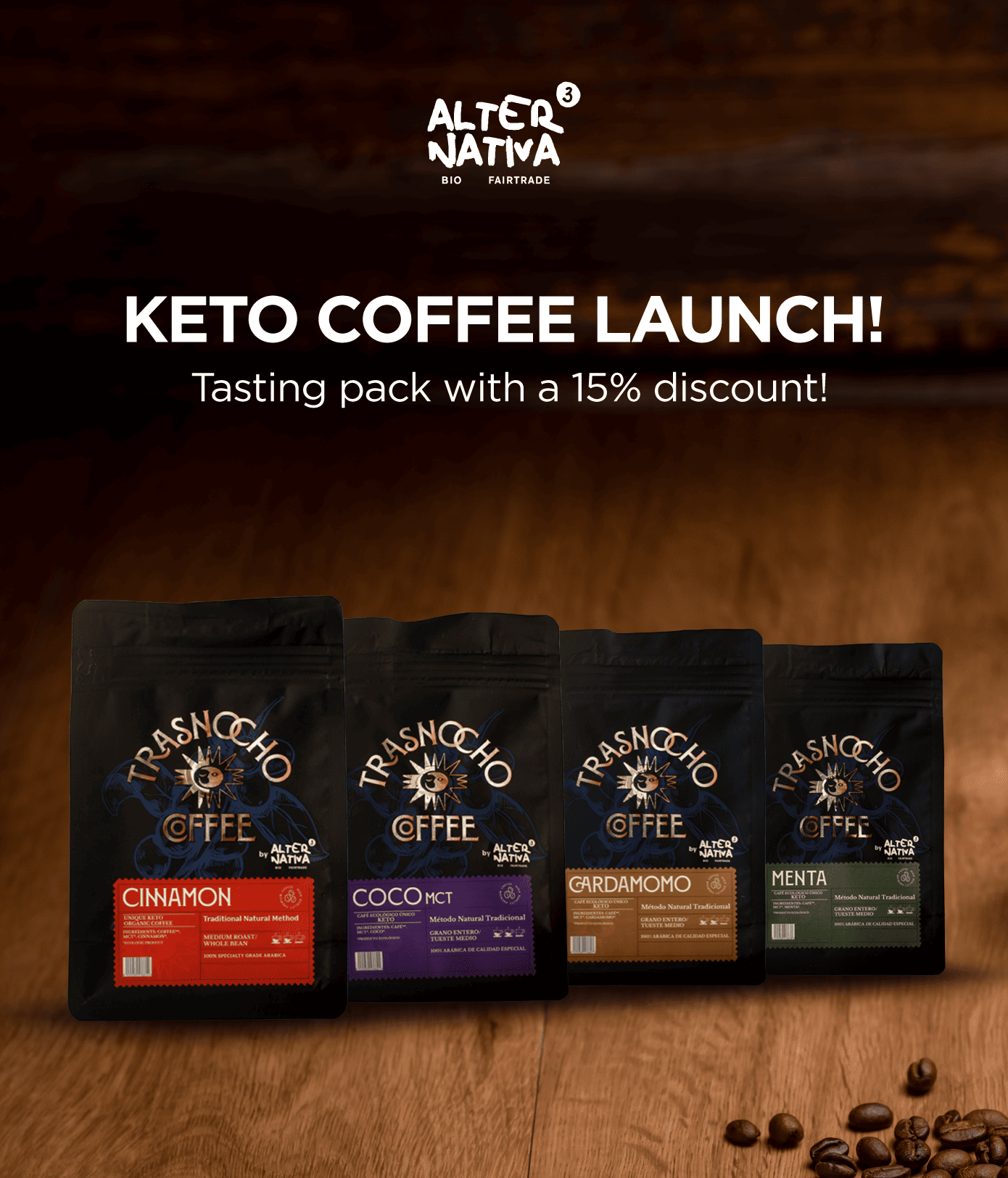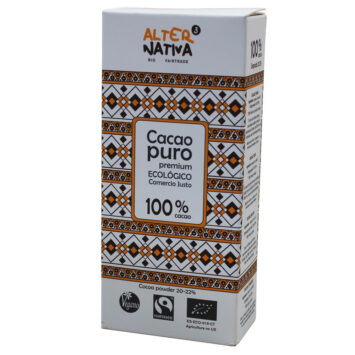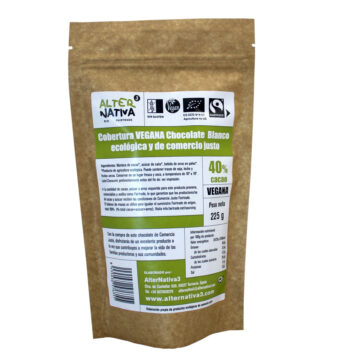White chocolate and almond bonbons
These chocolates combine the smoothness of white chocolate with the crunchiness of almonds and the juiciness of the filling. They are ideal for celebrations, as a gift or simply to enjoy a special moment - find out how to make them!
Ingredients
For the banana bread
- 142 g gluten-free flour
- 80 g special light AlterNativa3
- 1 teaspoon baking soda
- ½ teaspoon baking powder
- 1 pinch of salt
- 20 g of pure cocoa AlterNativa3
- 300 g very ripe banana
- 1 teaspoon cinnamon
- 90 g vegetable oil
- 50 g of chocolate for melting AlterNativa3
- 2 teaspoons vanilla extract
For the chocolates
- ½ banana bread
- 25 g vegan yoghurt
- 45 g berry jam
- 1 g agar-agar
- 225 g of vegan white chocolate AlterNativa3
- Crushed almonds (not ground)
- Coconut oil
Preparation
This recipe has two parts: first we make a fluffy banana bread and then we turn it into irresistible chocolates dipped in white chocolate with almonds.
Banana bread
- Preheat the oven to 180 °C and prepare the baking tin.
- Mix all the dry ingredients in a bowl.
- Melt the dark chocolate.
- Mash the bananas and mix with the cinnamon, vanilla and oil.
- Stir in the dry ingredients and the chocolate.
- Transfer the mixture to the baking tin and bake for 45 minutes.
- Leave to stand for 10 minutes in the oven and then cool outside.
- Remove from the mould and set aside.
Chocolates
- Crumble the sponge into a sandy texture.
- Mix the jam with the agar-agar and leave to solidify.
- Add the yoghurt to the sponge cake and mix until you obtain a mouldable dough.
- Shape into 15 g balls, fill with jam and freeze for 3 hours.
- Melt the white chocolate with a little coconut oil.
- Add crushed almonds to taste.
- Dip the frozen balls in the chocolate and freeze 30 minutes before serving.
Did you know that...?
It seems contradictory, but many people who produce our food are food insecure. Although they dedicate their lives to growing coffee, cocoa, sugar or fruit, in many cases they do not earn enough income to cover their own basic needs. This paradox reflects one of the deepest injustices of the global food system.
Fair trade is a key tool for transforming this reality, as it guarantees stable minimum prices, community premiums and fairer trade relations. As a result, producer communities can access adequate food, invest in education and health, and build a more sustainable future.
In this way, fair trade contributes directly to SDG 2: Zero Hunger, fighting hunger at its root and promoting an economic model that puts people's dignity at the centre.
Funded by




